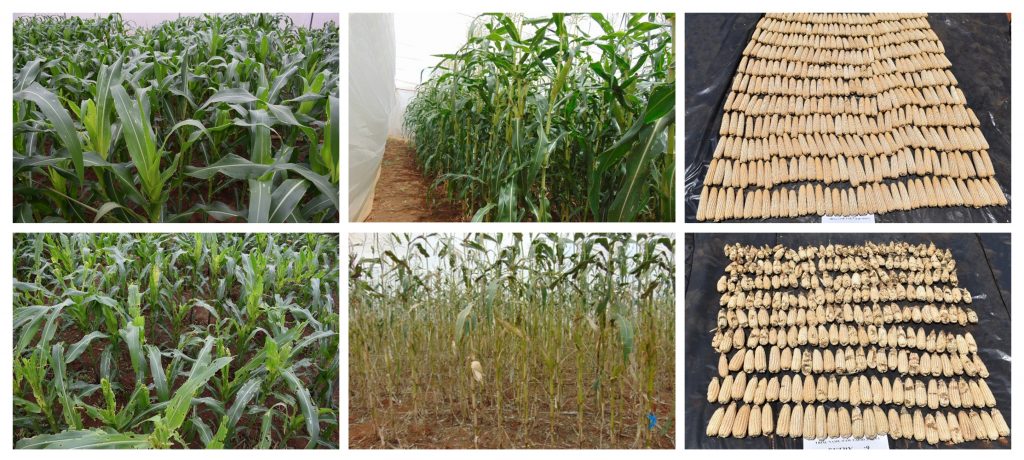Science wins a round in the fight against fall armyworm
CIMMYT announces three fall armyworm-tolerant elite maize hybrids for eastern and southern Africa, following intensive research and trials in Kenya
Fall armyworm is a fearsome adversary, especially for maize farmers. The second half of its scientific name, Spodoptera frugiperda, literally means “lost fruit.” Native to the Americas, the pest was first encountered in Africa in 2016. It quickly spread to over 40 African countries, causing an estimated $3 billion worth of crop losses. By 2018 it spread to Asia.
Faced with this crisis, researchers at the International Maize and Wheat Improvement Center (CIMMYT) — bolstered by strong global collaboration and partnerships — worked at breakneck speed to respond.
The pest cannot be eradicated. So CIMMYT and its partners raced to create awareness about the pest, the need for monitoring and early detection during the crop season and agronomic best practices for managing the pest in Africa and Asia.
“Fall armyworm poses a complex challenge and cannot be sustainably tackled by a single solution,” explained B.M. Prasanna, director of CIMMYT’s Global Maize program and the CGIAR Research Program on Maize. “We need to adopt an integrated pest management strategy based on scientifically validated technologies and management practices — including host plant resistance, biological control, environmentally safer pesticides, and agroecological management — considering the socioeconomic contexts of farming communities.”

The host has entered the chat
Researchers at CIMMYT leveraged the insect resistance of tropical maize germplasm developed in Mexico in the 1990s and the stress resilience of elite maize germplasm developed in sub-Saharan Africa. They worked intensively over the past three years to identify and validate sources of native genetic resistance to fall armyworm in Africa. This involved screening over 3,000 inbred lines and 3,500 hybrids during 2018 and 2019, in partnership with Kenya Agricultural & Livestock Research Organization (KALRO), at a screenhouse complex in Kiboko, Kenya.
In 2020, eight promising CIMMYT-developed maize hybrids — and four popular commercial hybrids which were included as checks — were subjected to a battery of trials: fall armyworm artificial infestation in screenhouses at Kiboko, on-farm trials in Kenya, and evaluations for other farmer-preferred traits in eastern Africa.
Based on these trials, three CIMMYT-derived hybrids emerged as the strongest candidates. When artificially infested with fall armyworm, these hybrids yielded 7 to 8.5 times more maize than the commercial checks.
CIMMYT is now partnering with research programs in over 10 countries across eastern and southern Africa to further evaluate these hybrids in national performance trials before their release. Once these hybrids are released as varieties in the target countries, they will be sublicensed to seed companies for scale-up to better reach farming communities. This process is expected to begin in 2022.
“Host plant resistance is an important pillar of integrated pest management. And the identification of the first set of fall armyworm-tolerant maize hybrids for Africa is a major development,” Prasanna said. “We intend to extend this success to Asia, where the pest is also causing havoc in many countries. A strong pipeline of elite maize varieties with farmer-preferred traits, including genetic resistance to fall armyworm, is the need of the hour in both Africa and Asia.”
Partners and funders
The Stress Tolerant Maize for Africa (STMA) project is funded by the Bill & Melinda Gates Foundation, the CGIAR Research Program on Maize (MAIZE), and the United States Agency for International Development (USAID).